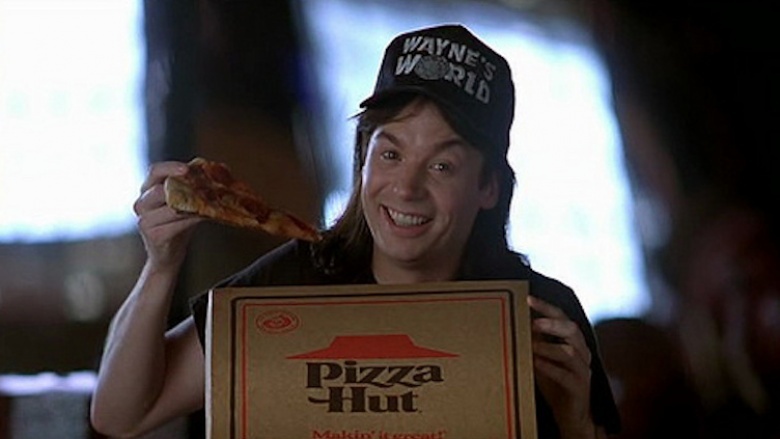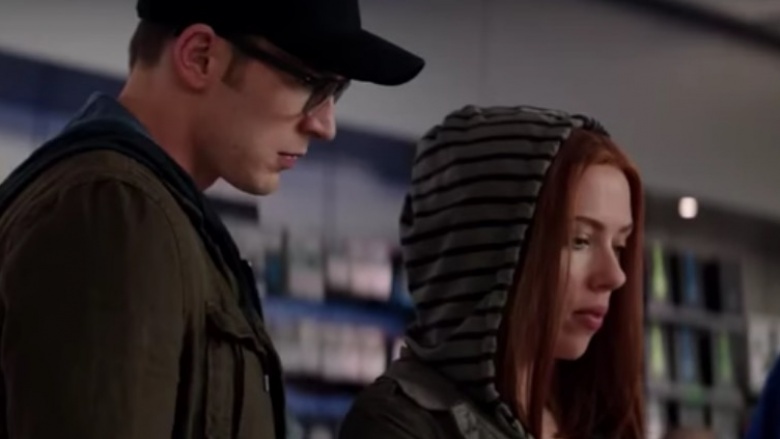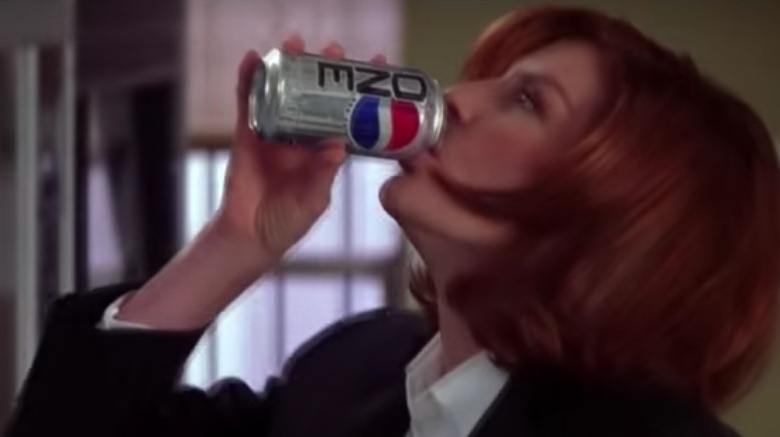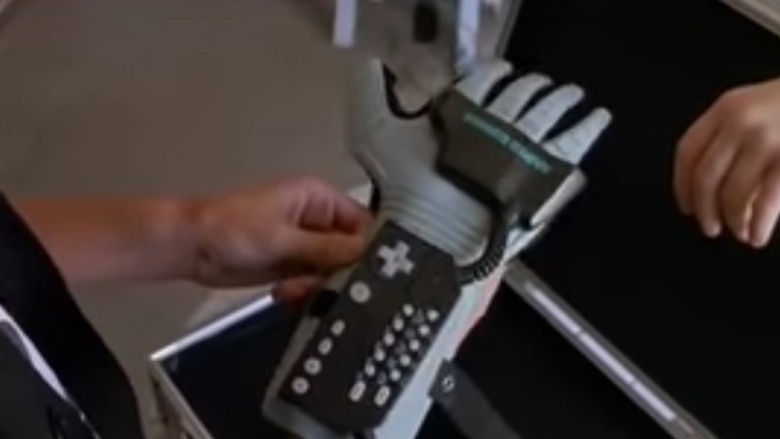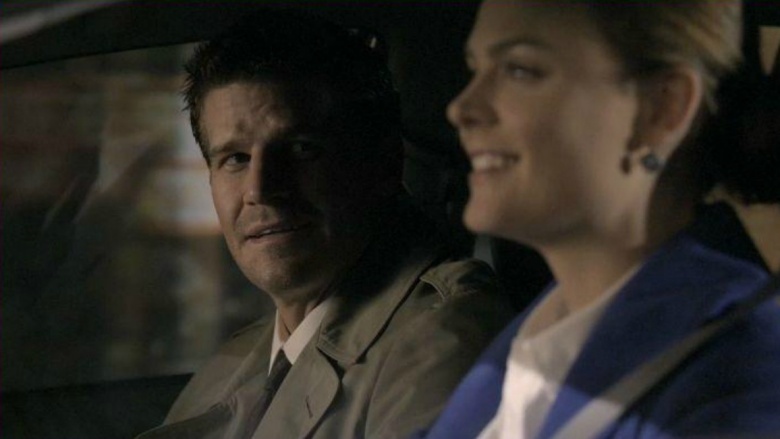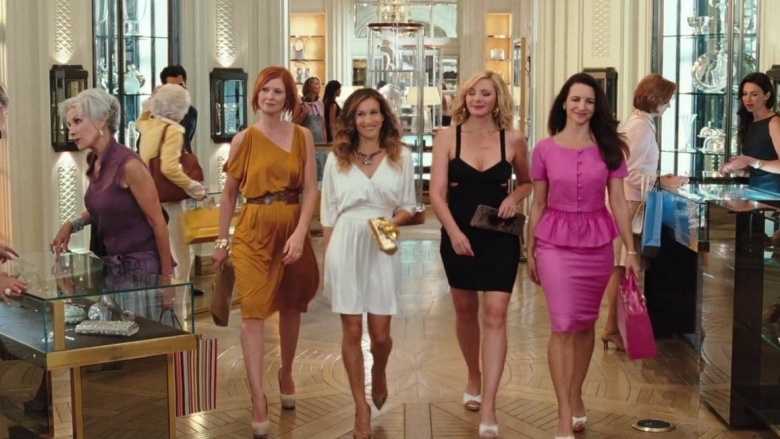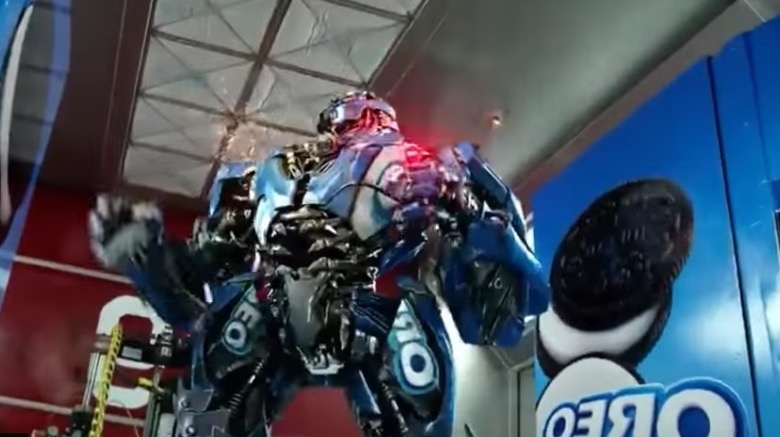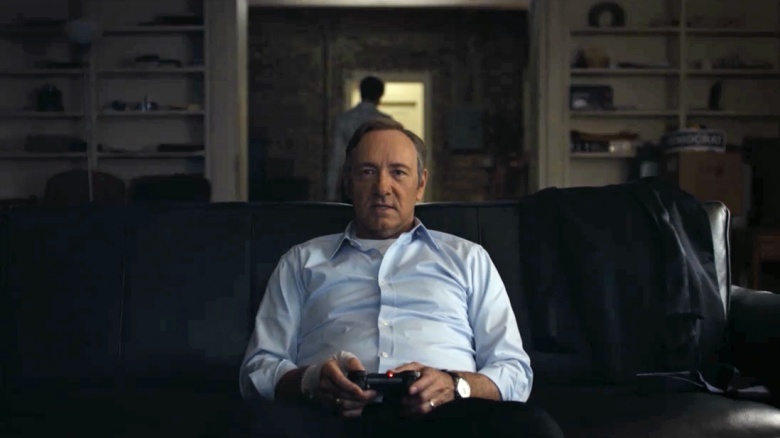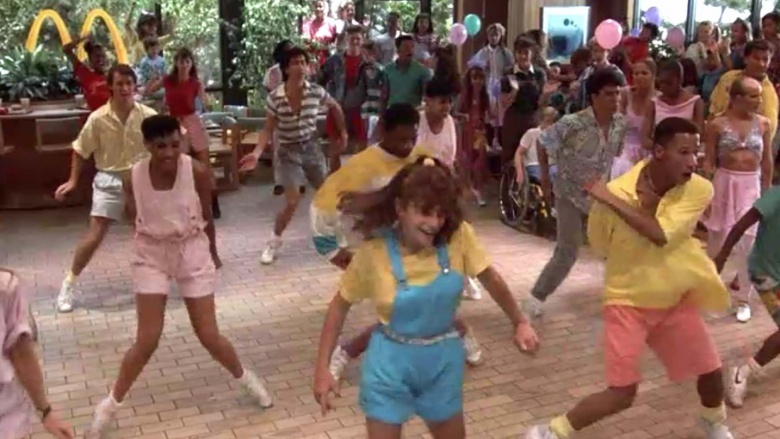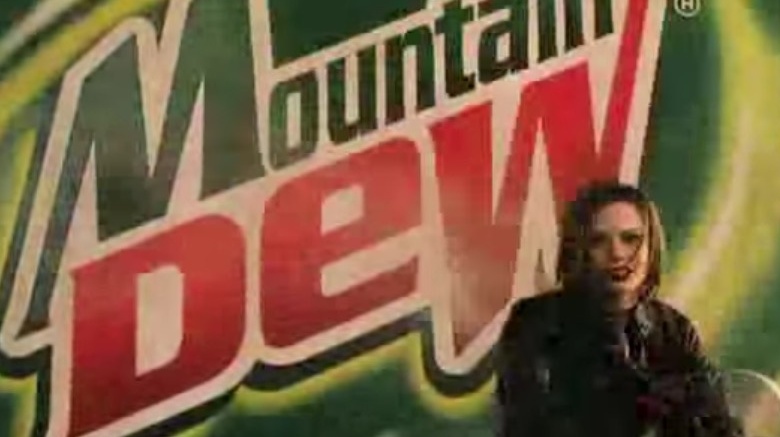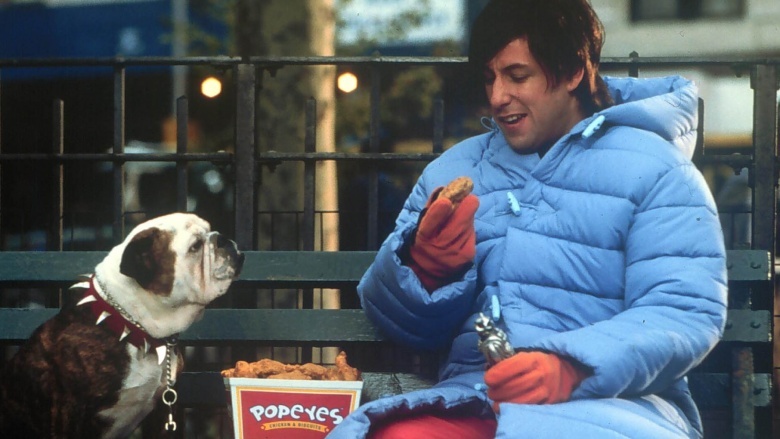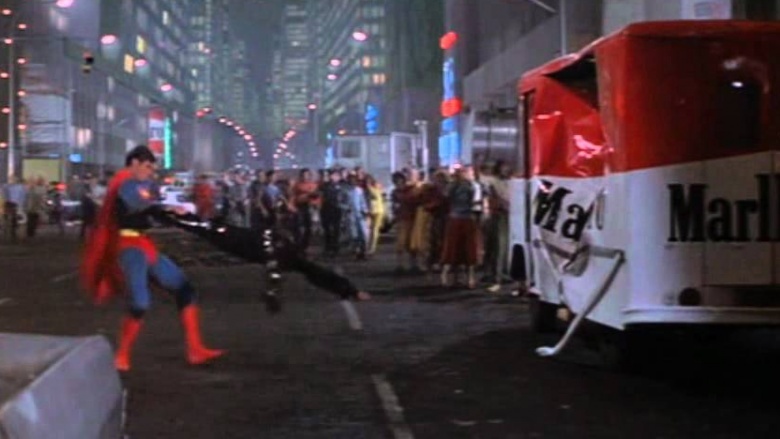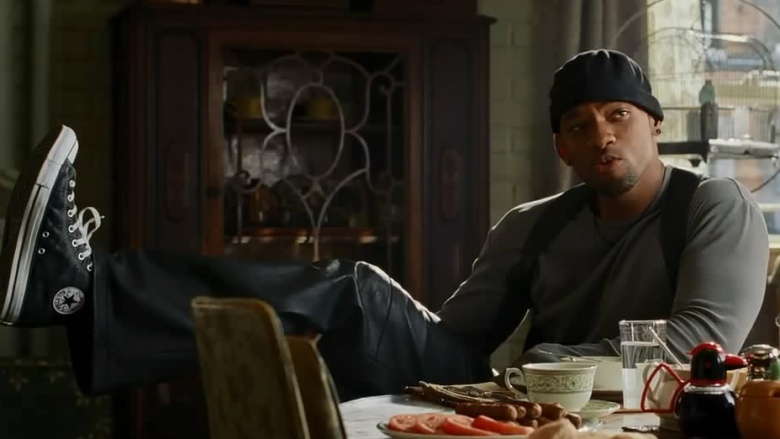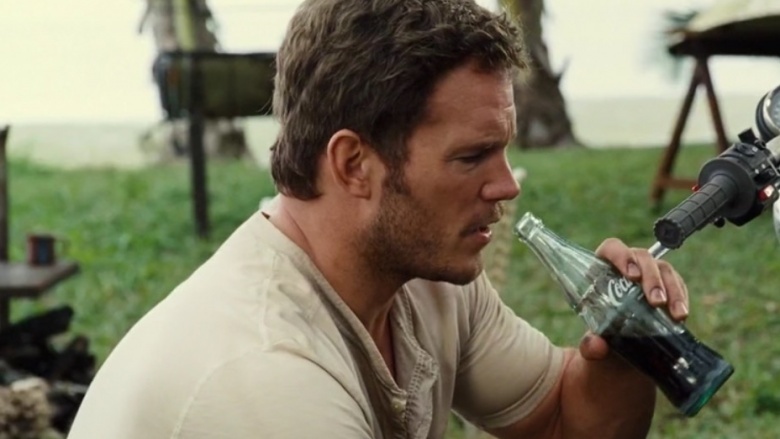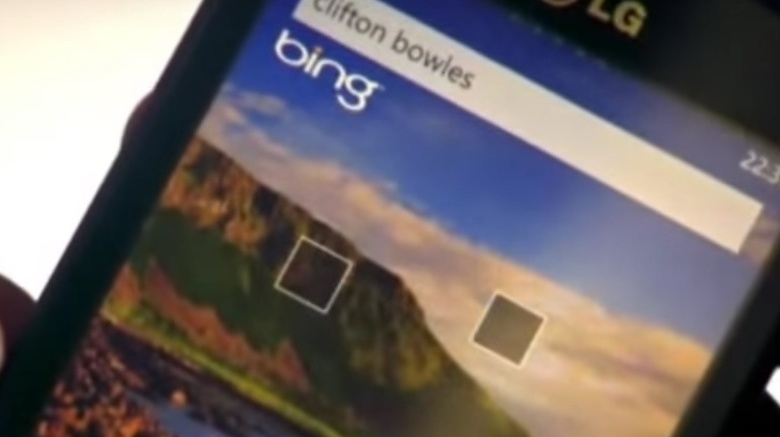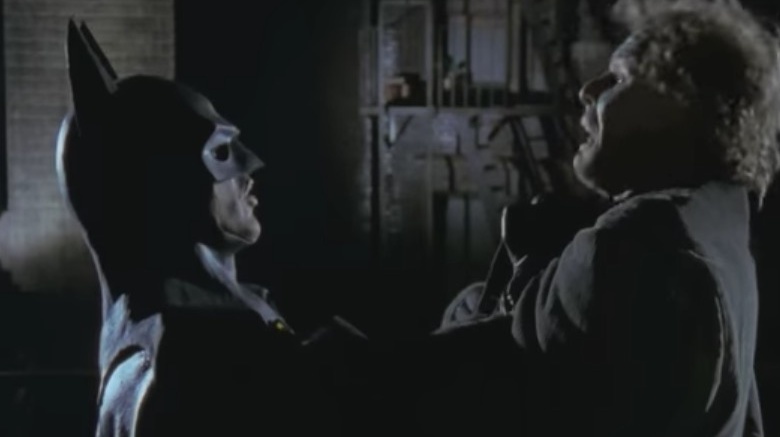Most Ridiculous Uses Of Product Placement In Movies And TV
We go to the movies and watch TV to escape from daily life. It's an immersive, cathartic experience to sit in a dark room and stare at beautiful people on a giant screen while they fight aliens and fall in love. (Or, on TV, to stare at beautiful people on a smaller screen as they fight zombies and fall in love.) Conversely, it's extremely jarring when the action grinds to a halt so one of the characters can inexplicably mention, stop in front of, or talk about some new car or soda. This is called "product placement," and while those sponsored moments help foot the bill for multi-million-dollar film and TV productions, they also take you right out of the action. Here are some of the most egregious examples.
Captain America: The Winter Soldier
A perceived benefit of product placement is that it adds realism to a film—after all, brands and products are pervasive in real life, so why not have that reflected in our arts and entertainment? It depends on the movie, because it kind of kills the suspension of disbelief when, say, superheroes have to wind up running the same errands as everybody else—like when Black Widow and Captain America disguised themselves as "hipsters" and ducked into an Apple Store while they were on the run.
The Thomas Crown Affair
This scene in the 1999 remake of The Thomas Crown Affair is so realistic, it probably reminds most viewers of that one coworker who takes 30 seconds in the middle of a conversation to walk over to a Pepsi One vending machine, buy a Pepsi One, and then breathlessly, lustily drink that Pepsi One with the label facing out. That's why we need remakes; the original 1968 Thomas Crown Affair certainly didn't feature Faye Dunaway drinking any sugar-free brown water.
The Wizard
The 1989 movie The Wizard is more or less a 90-minute advertisement for the Nintendo Entertainment System. Despite the really sad crux of the movie—a catatonic little boy is devastated over the death of his sister, fun!—it's about some kids road-tripping to the Nintendo World Championships (a touring event that took place soon after the release of the film) where they get to play the brand new, highly anticipated Super Mario Bros. 3. But the film's most memorable moment is when the plot grinds to a halt so our heroes can meet a cool sunglasses-wearing teen who is in possession of the Power Glove, a much coveted video game peripheral that viewers could pester their parents to pick up on the way home from the movie.
Bones
Bones is a police procedural, which means characters spend a lot of time driving to crime scenes and delivering exposition—so, Toyota execs apparently reasoned, they might as well talk about the car. In the sixth season episode "The Pinocchio in the Planter," Bones, Booth, and Sweets fawn all over a Prius for a full minute. The camera lingers on the rear-facing camera monitor and Bones describes how the "intelligent parking assist" works.
Sex and the City 2
The characters in Sex and the City are a vain, wealthy, superficial bunch, so fawning over products that will not fill the mammoth void in their souls is to be expected...but there are reportedly dozens of product placements in the second Sex and the City movie. The first is a scene in high-end retailer Bergdorf Goodman—the opening credits are still rolling when that one goes down. Pringles, US Weekly, a Suzanne Somers book—lots more mini-ads follow.
Transformers 4
Transformers originated as a cartoon show...which was created to sell Transformers toys. A product placement in one of the live-action Transformers movies is almost like a fun throwback to the source material, right? Yeah, except it's just weird to see a robot nursing its wounds next to a gigantic vending machine that sells exclusively Oreos, which are about as common in the real world as a transforming robot.
House of Cards
It's well established on House of Cards that evil politician Frank Underwood unwinds by playing video games. That's all well and good, but it makes little sense that he would begin one of his tense intimidation sessions with a rival by going on and on about the guy's kid's PlayStation Vita. "I oughta get one of these for the caaaaaaah," he drawls. (And so should you, dear viewer!)
Mac and Me
Is Mac and Me a ripoff of E.T.: The Extra-Terrestrial? Well, both are about troubled boys befriended by aliens. But while E.T. did feature its alien eating a branded product—Reese's Pieces—Mac and Me thought the way to differentiate itself from E.T. was to ramp up the product placements. There's a four-minute sequence that takes place at McDonald's, where customers, crew, and even Ronald McDonald himself love McDonald's so much they just gotta dance.
Torque
The 2004 movie Torque was like The Fast and the Furious but with motorcycles instead of cars and no sequels. As motorcycles are widely understood to be "xtreme," the unofficial beverage of all things xtreme, Mountain Dew, wanted in on the action. So there's just a massive poster for Mountain Dew hanging around while the bikers bike (as well as one for Mountain Dew's corporate parent, Pepsi).
Little Nicky
Product placement is a plot device in Little Nicky. During his first time on Earth and away from Hell, Nicky learns the way of the world by eating Popeye's fried chicken because a dog tells him to. Nicky proclaims the chicken to be "awesome."
Superman II
Superman is usually for kids. Not so much with Superman II. General Zod throws Superman into a Marlboro truck, right after they tussle by a sign for Cutty Sark whisky. Marlboro even reportedly paid extra for a depiction of Lois Lane smoking, thus creating a subconscious link in the movie between good guys and cigarettes. (The film's product placement was so jarring—and inappropriate—that Congress held a hearing about the legality of the practice.)
I, Robot
Audiences are keenly aware of product placement now, so producers have to get a bit smarter about it. I, Robot is set in the future (you can tell because of all the robots), which means Will Smith's character can buy "vintage" Converse Chuck Taylor All-Stars. It's an ad, but it passes for nostalgia, which passes for character development.
Jurassic World
Ironically, Jurassic World is a parable about the dangers of greed and capitalism gone unchecked. But it costs a lot of money to make a movie with realistic-looking dinosaurs, forcing the production to accept ad dollars. It's humorously lampshaded in the movie by explaining that the Jurassic World theme park costs so much to operate that the founders had to make on many corporate partnerships.
Hawaii Five-O
Hawaii Five-O apparently take place in an alternative universe that is much like our own, except that people actually use Bing.
Batman
It is perfectly reasonable that two ostensibly homeless junkie thugs would be familiar with an American Express advertising slogan, right?
